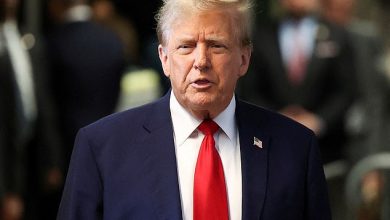Native Tribes Sue Meta, Google, TikTok, Snapchat Over Social Media Addiction

- Two tribal nations are suing Meta, Google, TikTok and Snapchat over youth mental health.
- Indigenous adolescents are up to four times more likely to commit suicide than other groups.
- The Spirit Lake Tribe and Menominee Indian Tribe say companies prey on vulnerable youth.
Two tribes are suing social media giants, accusing them of contributing to high suicide rates among Native teens by deliberately getting children addicted to their platforms.
The lawsuits were filed Tuesday in Los Angeles County Superior Court. One was brought on behalf of the Spirit Lake Tribe in North Dakota, and the Menominee Indian Tribe of Wisconsin brought the other. The lawsuits name Facebook, Instagram, Snapchat, TikTok, YouTube and their parent companies, including Meta and Google, as defendants.
“Given the historical problems with adolescent suicide and mental health issues on our reservation and throughout Indian Country, Native youth are particularly vulnerable to long-term negative effects resulting from intentional, profit-driven design choices made by these social media platforms,” Lonna Jackson-Street, president of the Spirit Lake Nation, said in a statement provided to Business Insider.
The lawsuit says suicide rates among tribal youth in the United States are three and a half to four times higher than those of other racial or ethnic groups, according to the Center for Native American Youth.
“Spiking suicides and mental illness have devastated tribal communities and pushed already chronically underfunded mental health programs to the breaking point,” the lawsuits state.
The lawsuits allege that the addictive nature of the platforms has contributed to the mental health crisis among youth, including among children on reservations.
The lawsuits said the social media companies “deliberately altered the design and operation of their apps to exploit the psychology and neurophysiology of children” and that the companies were preying on an already vulnerable group.
Among other things, the lawsuits seek “equitable relief to fund preventive education and treatment of excessive and problematic social media use.”
“Enough is enough. Endless scrolling is rewiring our teens’ brains. We demand that these social media companies take responsibility for intentionally creating dangerous features that accelerate the compulsive use of social media by our youth reservation,” Gena Kakkak, chairwoman of the Menominee Indian Tribe, said in a statement.
In a statement provided to BI, Google spokesperson José Castaneda said: “Providing young people with a safer and healthier experience has always been at the heart of our work. Working with experts in youth, mental health and parenting, we have developed services and policies to provide young people with age-appropriate experiences and parents with strict controls. The allegations in these complaints are simply false.
Meta, TikTok and Snapchat did not immediately respond to Business Insider’s requests for comment.
Other lawsuits have been filed over social media addiction, including by dozens of state attorneys general who sued Meta last year. However, these are the first social media addiction lawsuits filed by federally recognized tribes, according to Robins Kaplan, the firm that filed the complaints.
“These social media giants have generated hundreds of billions of dollars in revenue,” our complaint alleges, “using a growth-at-all-costs strategy that comes at the expense of Indigenous children and teens and the tribal nations of which they are a part.” Tim said. Purdon, chair of the firm’s Native American Law and Policy Group and senior adviser to the tribes, said in a statement.
New York City also filed a lawsuit against Facebook, Instagram, TikTok, Snapchat and YouTube in February, alleging that the addictive nature of their platforms contributed to the youth mental health crisis.
In response, Snap Inc., Snapchat’s parent company, said in a statement to The Associated Press that its app “opens directly to a camera — rather than a content feed that encourages passive scrolling — and n has no traditional public likes or comments. “.
The statement continued: “While we will always have more work to do, we are pleased with the role Snapchat plays in helping close friends feel connected, happy, and prepared for the many challenges of adolescence.”
A TikTok spokesperson told AP at the time: “TikTok has industry-leading safeguards to support the well-being of teens, including age-restricted features, parental controls, 60-minute automatic time limit for users under 18, and more.”
Meta also said the company wants “teens to have safe, age-appropriate online experiences” and that it has dedicated features aimed at helping kids and parents.
businessinsider




